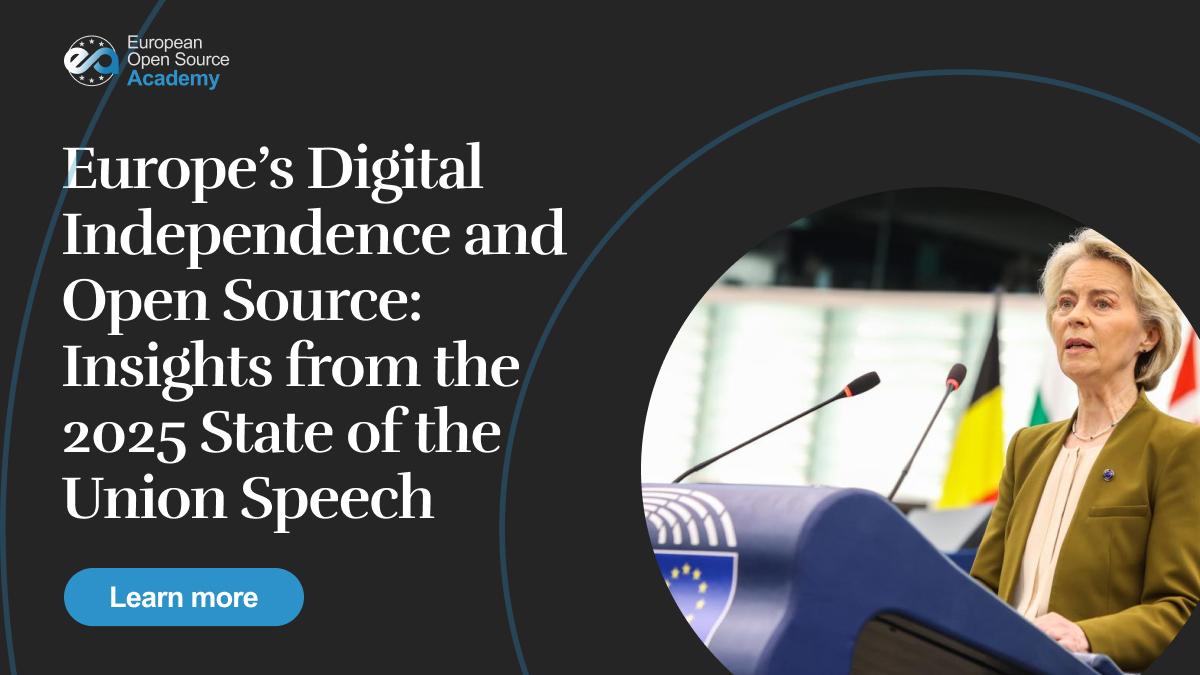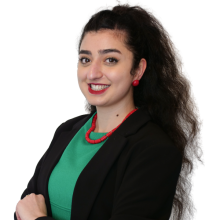On September 10, 2025, European Commission President Ursula von der Leyen delivered a compelling State of the Union address, challenging Europe to seize its moment of digital independence and strategic sovereignty. Recognising a complex world marked by geopolitical upheavals and technological disruption, von der Leyen declared, “This must be Europe’s independence moment... to take control over the technologies and energies that will fuel our own economies... to be open to the world and choose partnerships with allies, old and new. Ultimately, it is about having the freedom and the power to determine our own destiny”.
At the heart of this ambition lies the imperative to accelerate Europe’s digital and industrial transformation, investing boldly in innovation, technology sovereignty, and competitive economic ecosystems. Crucially, open source technology forms an indispensable pillar in this vision. By fostering transparent, collaborative, and community-driven innovation, open source empowers Europe to build resilient and sovereign digital infrastructures while reducing dependency on external providers.
The Critical Role of the European Open Source Academy (EOSA)
The European Open Source Academy (EOSA) stands as a newly established institutional pillar supporting Europe’s journey toward technological sovereignty. Launched alongside the inaugural European Open Source Awards in January 2025, the Academy was established to promote excellence, education, and sustainability in open source software and hardware across Europe.
EOSA recognises and celebrates pioneering contributions from individuals, businesses, and organizations that have significantly advanced open source innovation. Its mission extends beyond recognition: EOSA drives knowledge sharing, skills development, and leadership in open source, bridging the gap between diverse sectors including government, industry, and academia. By fostering open source expertise, EOSA equips Europe’s workforce and institutions with the competencies needed to champion digital sovereignty and support Europe’s strategic autonomy goals.
EOSA is designed to be a long-term, sustainable institution, ensuring open source remains at the forefront of Europe’s innovation landscape. Through its European Open Source Awards, annual ceremonies gather key stakeholders – policy makers, industry leaders, and community experts – to highlight how open source drives competitiveness, innovation, and digital resilience.
EOSA’s activities include training and education programs designed to build the next generation of open source contributors and leaders, laying a foundation for scalable adoption of open technologies. Moreover, by spotlighting sustainable funding models and policy frameworks, EOSA helps secure the ongoing maintenance and growth of open source projects – key to Europe’s technological future.
Bridging Vision and Action: From Speech to Strategy
President von der Leyen’s call for Europe to take control of its technological destiny finds a powerful echo in the work of EOSA. Her speech outlined concrete new initiatives, including a forthcoming Cloud and AI Development Act to boost Europe’s infrastructure for artificial intelligence and cloud services, and the need to triple European data centre capacity by 2035. These ambitions cannot be met without robust, community-driven technologies. By fostering open source communities and capabilities, EOSA helps ensure that the backbone of this infrastructure is transparent, interoperable, and secure.
The same applies to Europe’s cybersecurity agenda. The recently adopted Cyber Resilience Act establishes strict requirements for digital products while carving out tailored provisions for open source, recognising both its centrality and its unique mode of development. EOSA will, over time, work with the open source ecosystem to help provide the skills, training, and policy dialogue necessary for open source contributors to adapt to these new requirements, ensuring that Europe’s reliance on open software becomes a strength rather than a vulnerability.
Von der Leyen also underlined Europe’s strategic dependence on non-European technology providers and the need to invest in technologies that reduce systemic risk and promote technological sovereignty. Here, open source is critical. EOSA’s role aligns closely with proposals for an EU Sovereign Tech Fund – a vehicle to finance the long-term maintenance and security of widely used but underfunded open source projects. Such a proposal was recently endorsed by EOSA President Daniel Stenberg. By building leadership capacity and highlighting sustainable funding models, EOSA helps prepare the ground for such mechanisms, ensuring that Europe not only consumes open source but actively sustains it.
Finally, as Europe accelerates investment in frontier technologies – from AI to green digital solutions – EOSA supports the creation of “open digital public goods,” including open AI models and datasets that reflect European values of transparency and inclusivity. This investment in open source skills, leadership, and recognition is not merely complementary to Europe’s digital ambitions; it is foundational. Efforts like EOSA exemplify the strategic partnership between high-level policy vision and community-driven action, critical to making the State of the Union vision a reality. We hope to work more with the European Commission in this regard in the weeks and months ahead.
For further information on the European Open Source Academy, its initiatives, and upcoming events, follow us on social media and subscribe to our newsletter. In the next few months EOSA will make further strides in its development, including the opportunities to contribute to the enlargement of its membership. Stay tuned when you can get involved!

